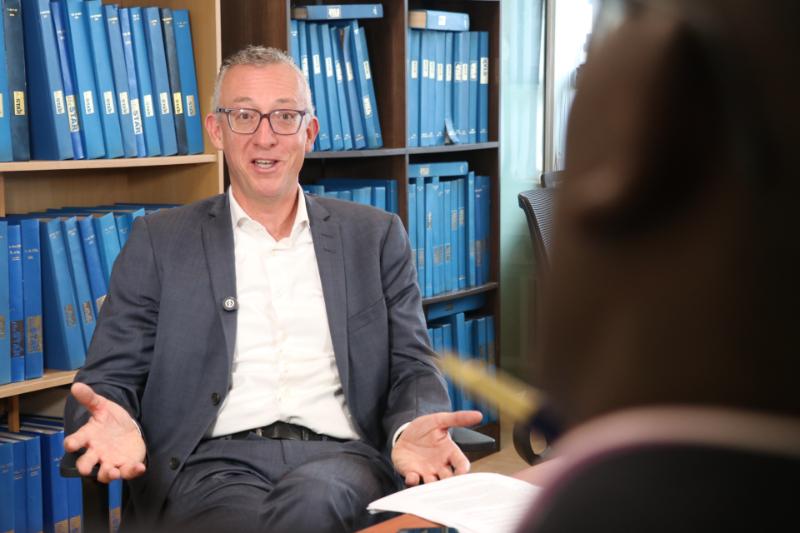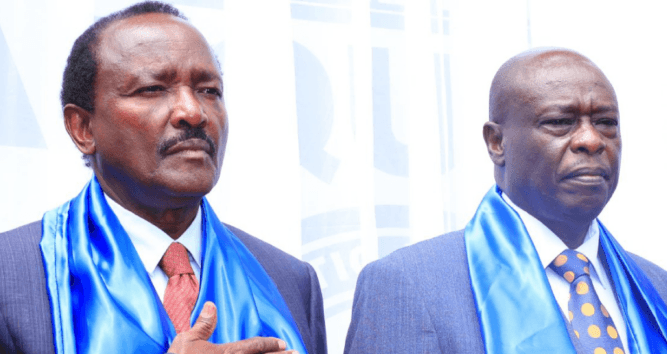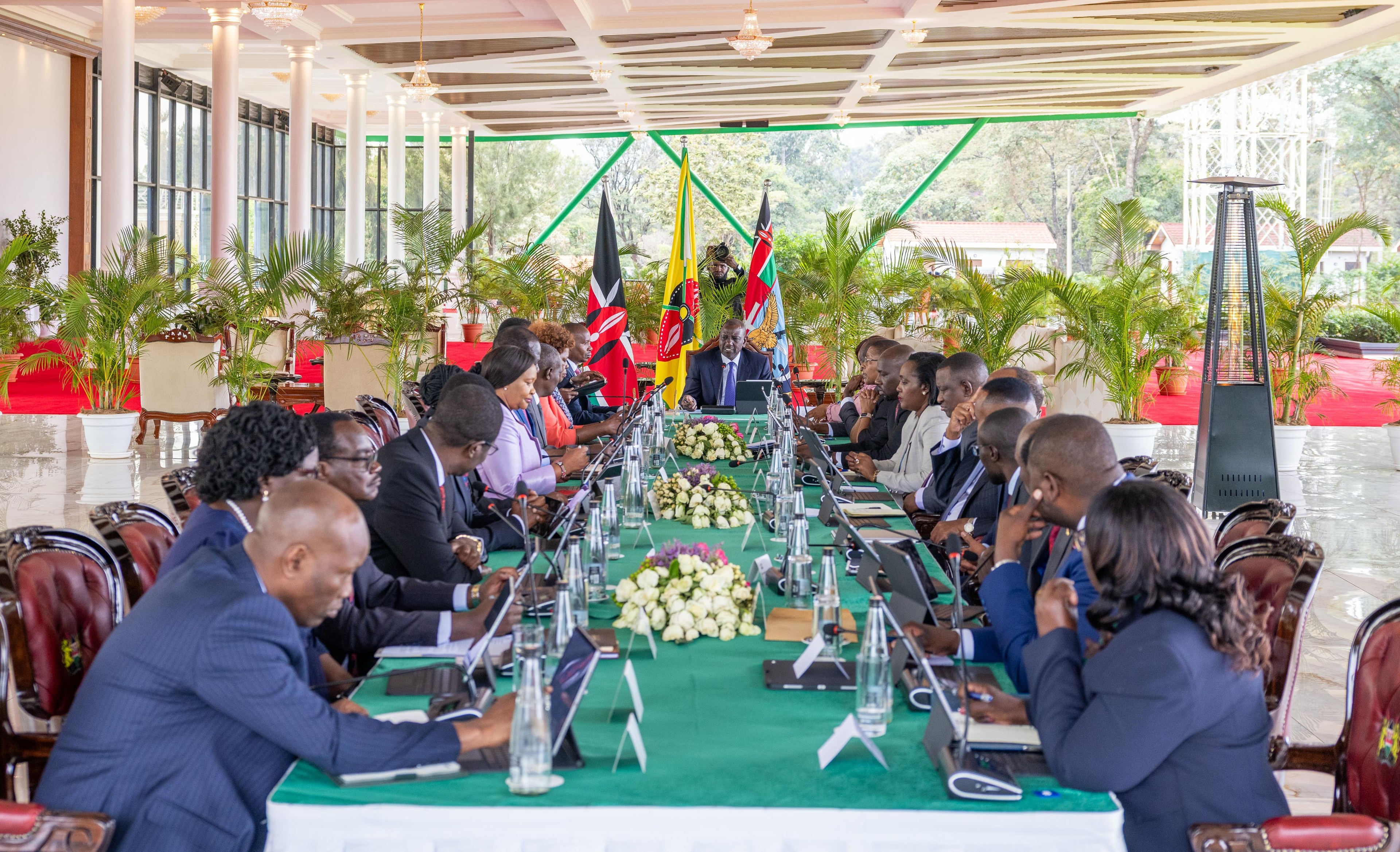
 Germany Ambassador to Kenya Sebastian Groth during an interview with The Star at Radio Africa offices, Westlands on July 31, 2025/LEAH MUKANGAI
Germany Ambassador to Kenya Sebastian Groth during an interview with The Star at Radio Africa offices, Westlands on July 31, 2025/LEAH MUKANGAI
German Ambassador to Kenya Sebastian Groth has voiced concern over an increasing loss of public trust in Kenyan institutions following last year’s June 25 protests.
In an interview with the Star, Ambassador Groth said after engaging with Kenyans, the prevailing sentiment is one of deep disillusionment with public institutions.
“My impression, after talking to people from various backgrounds, is that there is a significant erosion of trust in public institutions,” Groth said.
“And a state cannot function properly if its citizens don’t have confidence in its institutions.”
He said Germany is ready to play a facilitating bridge role among groups.
“We’re open to acting as a bridge between various groups because we understand the context from all sides and we are keen to help restore trust,” Groth said.
The German Embassy has been among the most vocal EU missions in condemning police brutality and killings during protests and also defending the rights of peaceful demonstrators.
Ambassador Groth underscored Kenya’s importance to Germany, saying it remains a strategic partner in Africa and globally.
“This relationship means a lot to us. That’s why we follow political developments in Kenya closely—every minute, every hour, every day,” he said.
President William Ruto has met former German Chancellor Olaf Scholz six times in just two and a half years, the most engagements Scholz has had with any African leader during that period.
Groth also described the June 25 protests of 2024 and 2025 as a turning point in the country’s history.
“It marks the political awakening of an entire generation,” he said. “If you look at the 2022 elections, I was surprised by the low voter turnout among Gen Z — around 50 per cent, which was less than expected.
“Now we’re seeing a generation that’s actively demanding political participation, economic reforms, and opportunities. This is a huge moment for Kenya.”
The envoy condemned violent acts during the protests.
“Looting, destruction of police stations and supermarkets, that is unacceptable. But at the same time, the authorities have a responsibility to manage the situation peacefully and constructively. We are ready to help,” he said.
His remarks align with a Geopoll report titled, ‘Perceptions on the June 25 Gen Z Protests in Kenya,’ which showed a significant decline in public confidence in government.
The report suggested 63 per cent of respondents expressed minimal trust in the government to address protesters’ concerns.
Of those, 38 per cent said they trusted the government “very little,” while 26 per cent said “not at all”.
Only 24 per cent said they “somewhat” trusted, and just 14 per cent expressed “very much” trust.
Additionally, 71 per cent of respondents said that their voices were not being heard by the government, while only 11% believed their concerns were being acknowledged.
Eighteen percent were unsure.
On youth engagement, 79 per cent said the government was not addressing their needs. Only eight per cent felt youth concerns were being taken seriously, while 12 per cent were uncertain.
Groth emphasised that his embassy maintains regular dialogue with both civil society and government officials.
“We feel that both sides are listening. They want to hear our views, even as they defend their own positions. But our style of diplomacy is not to dictate. We don’t come to a country to tell people what to do or not to do,” he said.














